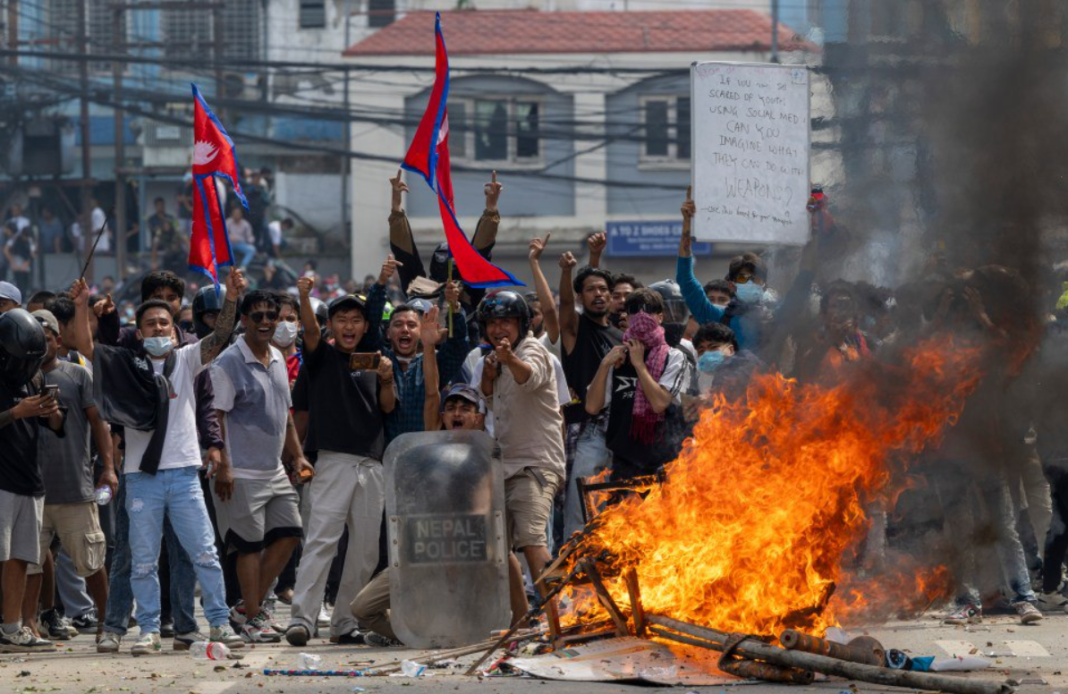Kathmandu, Sep 19: As Nepal marks a decade of democracy, legal experts, politicians and diplomats termed the present Constitution as “a vibrant one, if not the best” but also warned that weaknesses, including the provision of proportional voting system, have given rise to political instability in the country.
Describing Nepal’s 10-year journey of implementation of the Constitution, experts pointed out flaws, weaknesses and drawbacks in the implementation of the statute as well as highlighted the positive aspects as the Himalayan nation stands at the crux of a change following violent student-led protests leading to regime change.
Nepal’s Constituent Assembly delivered the Constitution on Asoj 3, 2072 Bikram Samvat, as per the country’s national calendar, or September 20, 2015, years after the erstwhile monarchy was abolished in 2008.
“I can say the present constitution is a vibrant one, if not the best one,” said Rambaran Yadav, the first President of Nepal.
“It guarantees democracy, republic system, federalism, inclusiveness, secularism, proportionate representation, press freedom, and freedom of expression, human rights, periodic elections and all other features of a vibrant democratic constitution,” Yadav told government run daily Gorkhapatra.
Nepal has faced frequent political turmoil as the country has seen 15 governments in the past 17 years since the monarchy was abolished and 10 since the Constitution was adopted.
For a majority of the time over the last decade, three prominent political parties – the Nepali Congress, Nepal Communist Party-Unified Marxist Leninist (NCP-UML) and Nepal Communist Party-Maoist Centre (NCP-MC) shared power.)
Observers pointed out that even when adopting the Constitution had led to the institutionalisation of modern democracy, the frequent change in governments led to corruption and mismanagement eroding public trust.
“There has been no political stability in the country in the last 10 years. This is largely because of the current mixed electoral system, in which 60 per cent of the House of Representatives (HoR) members get directly elected and the rest through a proportionate voting system,” pointed out former Nepalese ambassador to India Dr Durgesh Man Singh.
“No political party could get majority seats in the past one decade resulting in a hung Parliament and the politics of coalition,” Singh added.
Nepal’s HoR has a total 275 members, of which as many as 165 are elected directly while the rest (110) are chosen through proportionate voting.
Former president Yadav concurred: “The provision of the proportionate voting system is one of the weaknesses in the implementation (of the Constitution). It has given rise to political instability and the elections have become expensive.”
“Federalism and provincial states are an integral part of the Constitution, and it should not be changed in the name of reducing expenses,” pointed out Yadav. “Of course, we need to make efforts to make elections less expensive.”
“The good aspects of the constitution have not been properly implemented. We need to implement the good aspects of the constitution and amend its wrong aspects in the days ahead,” constitutional expert Bhimarjun Acharya said.
“We have been able to save the Constitution but only partially,” he added. “We need to make it more vibrant and implement its provisions effectively so that the Constitution becomes fully functional.”
Explaining his point, former Ambassador to India Singh gave an example of how one and a half years ago, the largest party in the Parliament, the Nepali Congress, and the second largest party CPN-UML joined hands to form a coalition government leaving a weak opposition in the Parliament.
“In the absence of a strong opposition party, the government was not accountable and responsible to the people,” he said. “This gave rise to corruption and political disorder.”
“The main target of Gen Z protesters was the corrupt politicians and chaotic situation of the country and not the Constitution,” Singh pointed out. “Now, we need to move ahead by learning from the past mistakes.”
‘Gen Z’ group hit the streets across Nepal on September 8 and 9 against the prime minister K P Sharma Oli government over corruption and a ban on social media. Sushila Karki, 73, became Nepal’s first woman prime minister on September 12, ending days of political uncertainty after the ouster of Prime Minister K P Sharma Oli on September 9. (PTI)




